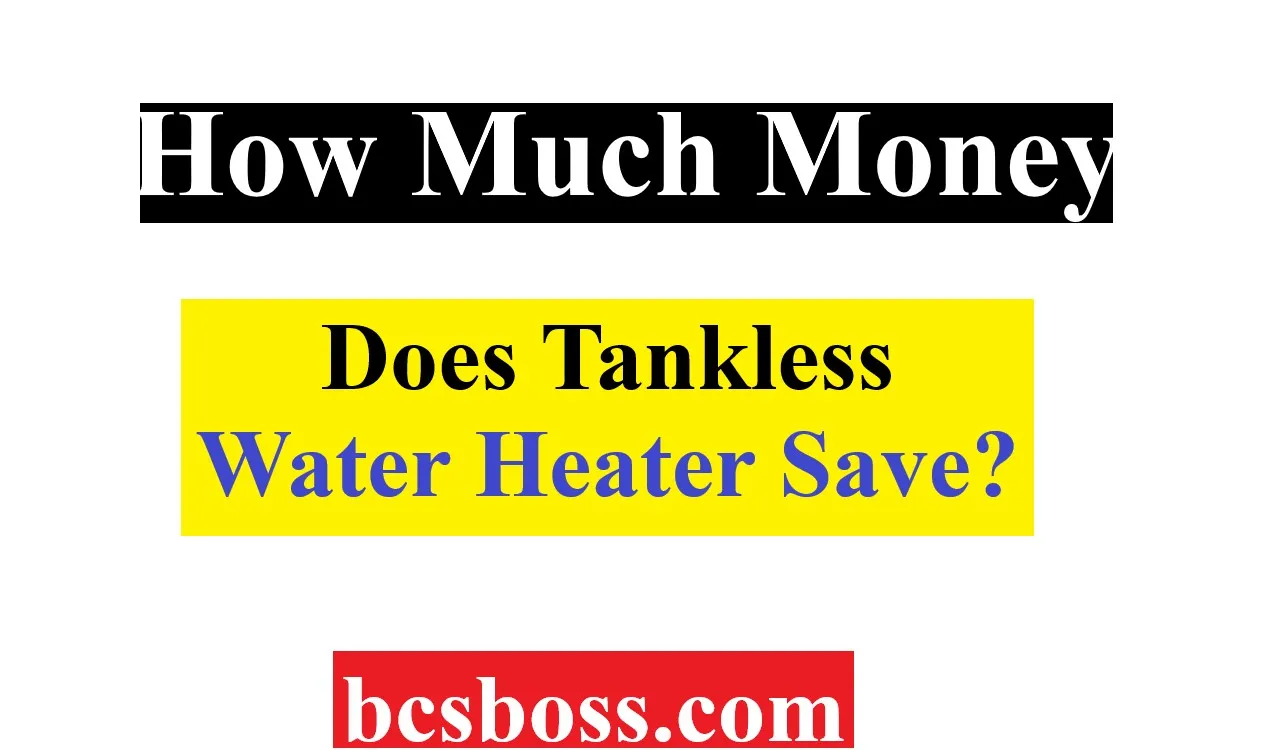What is Tankless Water Heater?
The tankless water heater is a system that delivers hot water at a preset temperature. It doesn’t store any water. They are also known as “flash”, “demand” or “instantaneous” water heaters. The approach reduces energy standby losses. The device heats water; only the hot water valve is being used. Traditional devices store a tank of hot water at all times on standby. Users can receive hot water as they turn the hot water valve on. Tankless water heaters have an electric, gas, or propane heating device.
They are activated by the flow of hot water valves. It can provide instant hot water as it is being used. There are several benefits to using a tankless water heater. They are quick and reliable with replacement parts. They are available in a variety of sizes for different faucet applications. It can be operated by propane, natural gas or electricity. With energy and water savings, the average payback period for a tankless heater is one to five years.

How Much Money Does Tankless Water Heater Save?
Does Tankless Water Heater Save Money?
Tankless water heaters are often advertised as efficient and a good way to save money. So do tankless water heaters save money? Reports vary on how much money tankless water heaters can save. According to energy star, they can save $100 or more per year. Consumer reports estimate savings to be only $70-80 per year. Depending on individual use, a tankless unit can save up to 20% on electricity or gas per month. Yet, sometimes they cost more to operate than a well-insulated tank water heater.
Average Daily Water Usage for Per Person?: How Many Gallons of Average Daily Water Usage for Per Person?
The best way to save money on hot water is to insulate the hot water pipes between the heater and the fixtures. It helps to keep the heat from radiating away while the hot water is moving through the pipes. The initial cost to buy and install a tankless unit can be up to three times more than a traditional unit. They also need yearly maintenance, unlike traditional tank heaters. So, a tankless water heater will save you money when you consider all the costs involved. Yet, they may run more efficiently. It depends on the uses of the unit.
Energy Efficiency Factor of a Tankless Water Heater:
The energy factor indicates the energy efficiency. It is based on the amount of hot water produced per unit of fuel consumed in a day. This includes the following:
- Recovery Efficiency: efficient heat from the energy source to the water.
- Standby Losses: The percentage of heat loss per hour from the stored water.
- Cycling Losses: The loss of heat as the water passes into the water tank, Or inlet and outlet pipes.
Traditional Water Heaters VS Tankless Water Heaters: Traditional Water Heaters VS Tankless Water Heaters in 2024
How Much Money Do Tankless Water Heaters Save?
Here I would like to show a table. That will focus the operating cost of the tank and tankless water heater. It can help to make a clear sense about saving the capacity of a tankless unit.
| Unit | Energy Source | Energy Factor | Annual Cost |
| Standard 50-Gallon Gas storage Tank | Natural Gas | 0.60 | $273 |
| Standard 50-Gallon Gas Storage Tank | Propane | 0.60 | $646 |
| Standard 50-Gallon Electric Storage Tank | Electricity | 0.95 | $557 |
| Mid-Efficiency Non-Condensing Tankless | Natural or Propane Gas | 0.82 | $200 $473 |
| High-Efficiency Condensing Tankless | Natural or Propane | 0.96 | $171 $404 |
So when you consider a tankless unit, you need to estimate its energy efficiency and annual operating cost. After that, you can compare its costs with more or less energy-efficient models. It will help you to determine the energy saving.
How Much Money Does Top Brand Tankless Water Heaters Can Save?
I would like to cover tankless water heaters savings. So let’s dig a little deeper and compare popular brands.
- Navien: This tankless unit offers the ultimate in energy efficiency with hi-tech comfort. It can save 90% more energy than other tankless brands.
- Rinnai: This heater engineering with smart advanced technology. It features copper heat exchangers to provide high efficiency. This unit makes energy star qualifications. It can use up to 40% less energy than a traditional unit.
- Takagi: Takagi offers high-efficiency ultra-low NOx condensing technology. It has a wide range of commercial as well as residential natural gas heaters. T-H3S-DV/OS, T-D2U, and T-D2-IN/OS are the most popular models of Takagi brands.
- Rheem: It is a sought-after brand that includes prestige condensing heaters. Rheem is in the top 25% for efficiency. Depending on the age of your existing equipment you can save 15% to 40% on your utility bill.
- Bosch: It has quality indoor and outdoor heating systems. Both condensing and non-condensing systems are available. They produce domestic hot water in an ultra-efficient manner.
They are all about efficiency. The more efficient the heater, the more you will save. In the tankless unit, you are not heating stagnant water. The water is only being heated during use. In this unit, you can save a lot of water. You need to remember that quality installation can affect efficiency. If the unit is not installed in a proper way, you will end up wasting energy and money.
Conclusion:
Compared to a tank unit, a tankless unit can save your money. The higher the energy factor, the more efficient the water heater is. Yet, a higher energy factor doesn’t always mean lower annual operating costs. At the time you are going to compare fuel sources. Product literature provides a model’s energy factor. You should not choose a water heater model based on its energy factor.
Before selecting a tankless unit, you need to consider size, First-hour rating, fuel type and cost. You may be able to lower your monthly bill with a tankless unit, but it can take a long time to recoup your initial costs. It’s unlikely you will save money when all costs are included in.

